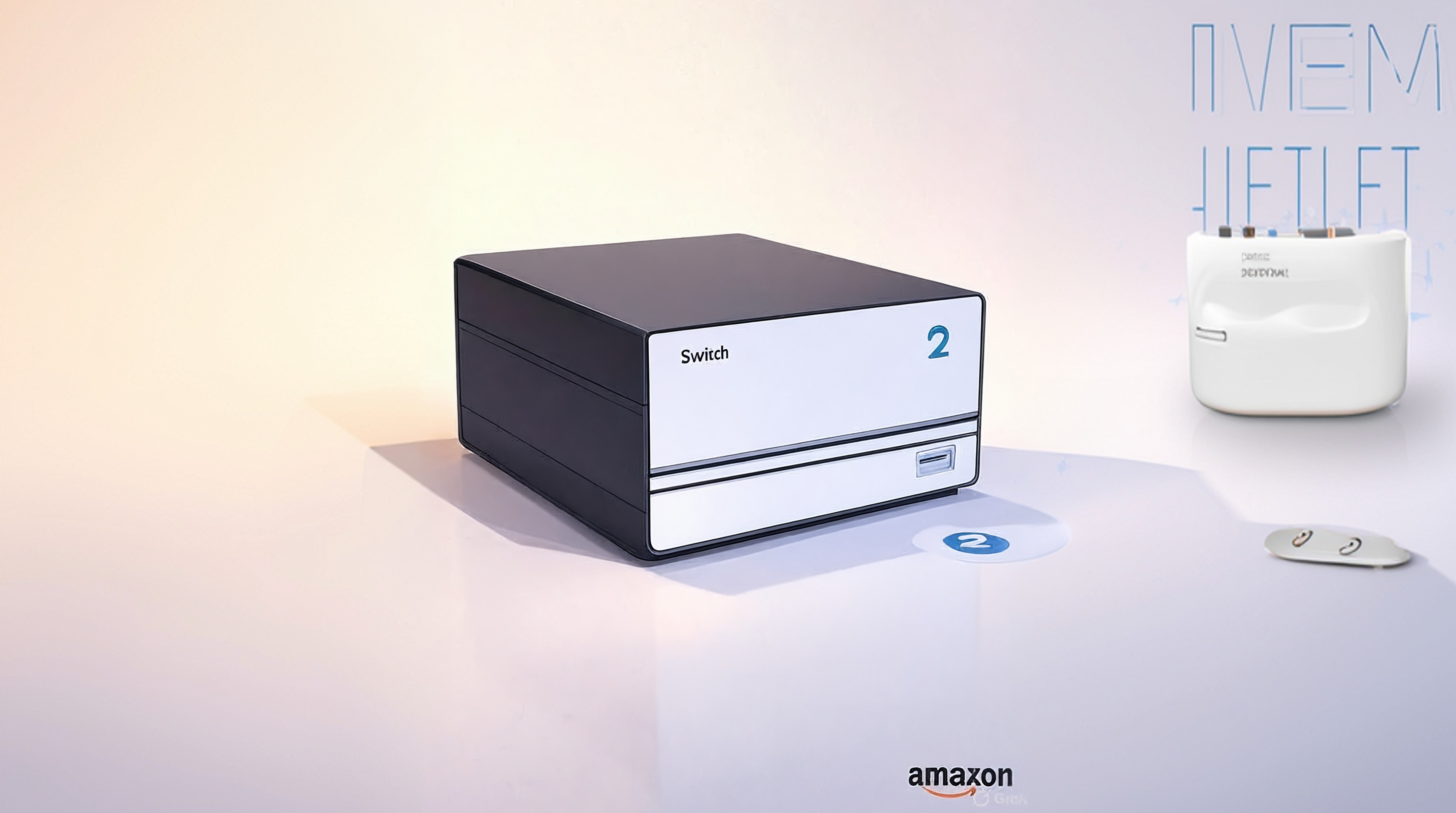
2025 Tech Trends: Earbuds, Laptops, and Smart Storage
Consumer technology keeps evolving, blending everyday tools with advanced features that reshape how people work, listen, and store data. Recent launches from Apple, Microsoft, Lenovo, and Ubiquiti highlight a push toward seamless integration, where AI enhances usability without overwhelming complexity. These developments reflect broader shifts in platform ecosystems, prioritizing user health, productivity, and data management in an increasingly connected world.
Revolutionizing Audio with AirPods Pro 3
Apple's latest earbuds, the AirPods Pro 3, launched in September 2025, mark a notable step in merging audio quality with health monitoring. Priced at $249, these earbuds maintain affordability while introducing features like heart-rate sensing and Live Translation, powered by the new H3 chip. This chip drives improvements in active noise cancellation (ANC), claiming to block twice as much noise as the previous model and four times more than the original.
The design refinements address common pain points. Foam-filled ear tips offer better passive isolation and a more secure fit, reducing the need for constant adjustments during extended wear. Users benefit from personalized spatial audio, tailored via iPhone's TrueDepth camera to match individual ear shapes. Such customizations extend to health tools, including workout tracking for over 50 activities through the Fitness app.
AI-Powered Features and User Benefits
Live Translation stands out as a practical application of AI, enabling real-time conversation translation with beamforming microphones and voice isolation. This feature leverages ANC to focus on speakers, transcribing and translating in the moment. Experts point to this as a bridge between audio devices and global communication, especially valuable for travelers or multilingual environments. The integration of heart-rate monitoring positions the earbuds as companions to fitness routines, competing with dedicated wearables like those from Fitbit or Samsung.
Broader implications emerge in how these features support accessibility. Enhanced ANC and adaptive audio help users in noisy settings, from bustling offices to public transport, fostering focus and reducing stress. Yet, this convergence raises questions about data privacy, as health metrics sync across Apple's ecosystem. Platforms must balance innovation with transparent data handling to maintain user trust.
Top Laptops Balancing Power and Portability
In the laptop space, 2025 selections emphasize efficiency for diverse needs. The MacBook Air M4, released in March, leads for most users with its thin design, exceptional battery life, and M4 chip handling productivity tasks smoothly. Starting at $999 for the 13-inch model, it appeals to those seeking a bloatware-free experience within Apple's ecosystem.
Alternatives cater to different preferences. The Lenovo Chromebook Plus 14, with its OLED touchscreen and 16GB RAM, excels in multitasking and education, backed by long software support. Meanwhile, Microsoft's Surface Laptop 7th Edition offers all-day battery and a premium Windows build, though it lags in gaming and some AI tools feel underdeveloped.
Ecosystem Integration and Productivity Shifts
These laptops underscore a trend toward AI-enhanced workflows. The M4's efficiency integrates with tools like Apple Intelligence, streamlining tasks without draining power. Experts note how this setup benefits creators and remote workers, where battery life directly impacts mobility and work-life balance. In contrast, the Surface's Windows compatibility supports enterprise software, but emulated apps can hinder performance, highlighting ongoing challenges in cross-platform optimization.
Socially, these devices influence digital divides. Affordable options like the Chromebook Plus make high-spec machines accessible for students and small businesses, promoting equitable tech adoption. However, as AI features mature—think Microsoft's Copilot or NVIDIA's DLSS—they could redefine productivity, potentially automating routine tasks and freeing time for creative pursuits. Platforms need to ensure these tools empower users rather than creating dependency.
Ubiquiti's NAS: Sleek Storage for Modern Networks
Ubiquiti enters the storage arena with the UNAS 2 and UNAS 4, devices that mimic wireless routers in design while delivering robust NAS functionality. The $199 UNAS 2 supports two hard drives in RAID 1, featuring a compact form with a front screen for metrics and USB-C expansion. The upcoming $379 UNAS 4 scales up to four drives plus NVMe SSDs, ideal for larger setups.
This approach integrates seamlessly with Ubiquiti's UniFi networking, appealing to home offices and small businesses. Unlike bulkier competitors from Synology or QNAP, these units prioritize aesthetics and simplicity, with easy drive access and real-time monitoring.
Trends in Data Management and Security
The shift toward hybrid storage—combining HDD capacity with SSD speed—mirrors growing data demands from content creation and remote work. Experts praise Ubiquiti's ecosystem focus, which simplifies management for non-experts, reducing barriers to secure backups. This matters in an era of rising cyber threats, where integrated systems can enhance privacy through automated encryption and RAID redundancy.
Implications extend to the creator economy, where reliable storage supports video editing and media streaming. As platforms evolve, features like AI-driven organization could emerge, automating file sorting and backups. However, competition from startups like Nothing Technology in adjacent spaces suggests a need for ongoing innovation to address user pain points, such as seamless cloud integration.
Future Directions and Recommendations
Looking ahead, expect deeper AI convergence across these categories. AirPods may incorporate more sensors for comprehensive health tracking, like temperature or blood oxygen, aligning with wellness trends. Laptops could see advanced AI for predictive battery management or collaborative tools, while NAS devices might add cloud-hybrid options for effortless data syncing.
For users, prioritize ecosystem compatibility—pair AirPods with iPhones for full features, or choose laptops based on software needs. In storage, assess capacity against design preferences; Ubiquiti's offerings suit those valuing minimalism. Platforms should focus on ethical AI deployment, ensuring features enhance human experiences without compromising privacy.
Key Takeaways
These 2025 launches illustrate technology's role in everyday life, from health-integrated audio to efficient computing and stylish storage. Apple's AirPods Pro 3 excel in ANC and translation, top laptops like the MacBook Air M4 balance power with portability, and Ubiquiti's NAS redefine data handling. Together, they point to a future where tech platforms prioritize user-centric innovation, fostering productivity and well-being amid rapid change.
Comments
Read more

Wolverine PS5 Debut and Alan Wake 2 Free: Gaming Shifts
Explore Marvel's Wolverine PS5 release and Alan Wake 2 on PS Plus, with insights on tech trends, narrative gaming, and platform strategies.

Switch 2 Lands on Amazon Amid Prime Deals Surge
Explore how Nintendo's Switch 2 hits Amazon shelves, boosting accessibility, while Prime memberships unlock exclusive sales and perks in evolving consumer tech.

YouTube's Livestream Boost: Features and Future Impact
Explore YouTube's major livestream upgrades, from AI highlights to dual-format streaming, and their implications for creators and competition.